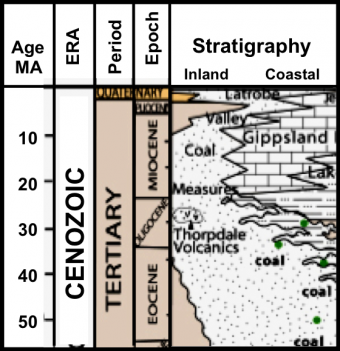Our ultimate goal is to know how much hydrocarbon (HC) is in the reservoir and what portion we can produce, the estimated ultimate recovery (EUR). Our focus is on the amount of HC in place. We need to also understand the volume of HC that we can recover at the surface. Many factors go into the recovery efficiency, in particular, how effective the reservoir’s “plumbing” is, which is related to the permeability of the reservoir rocks. We also have to account for the volumetric expansion of oil and gas due to the drop in temperature & pressure as the fluids go from reservoir conditions to surface conditions.
At the end of this lesson, the student should be able to:

This short course takes a brief look at what happens in the early stages of field exploration in the petroleum industry. The Gippsland Basin, offshore Australia, is the field example, and we start with a look prior to the first offshore licensing round of the field. Throughout the course, we will progress to the stage of management review of a wildcat well.
We encourage the reuse and dissemination of the material on this site as long as attribution is retained. To this end the material on this site, unless otherwise noted, is offered under Creative Commons Attribution (CC BY 4.0) license